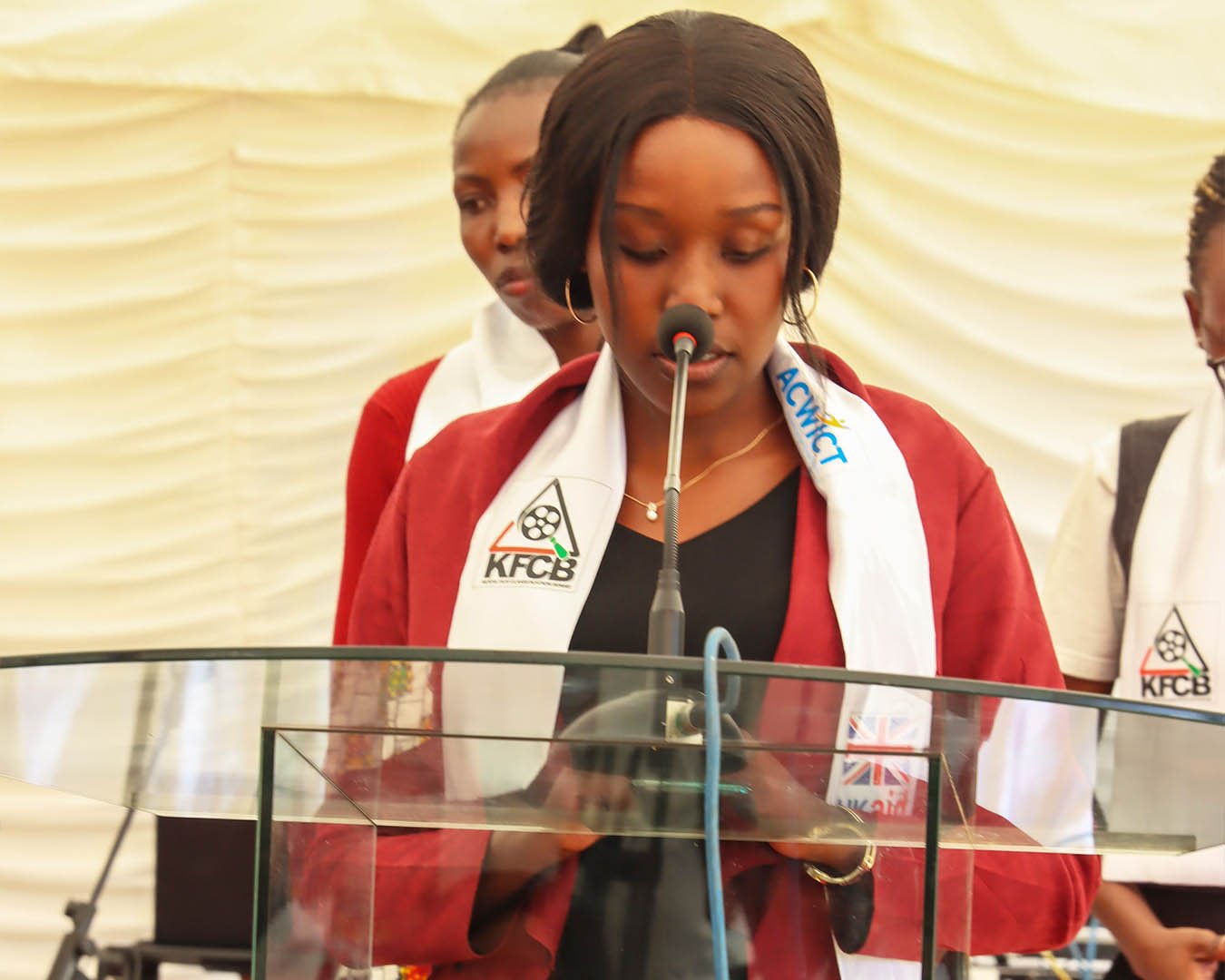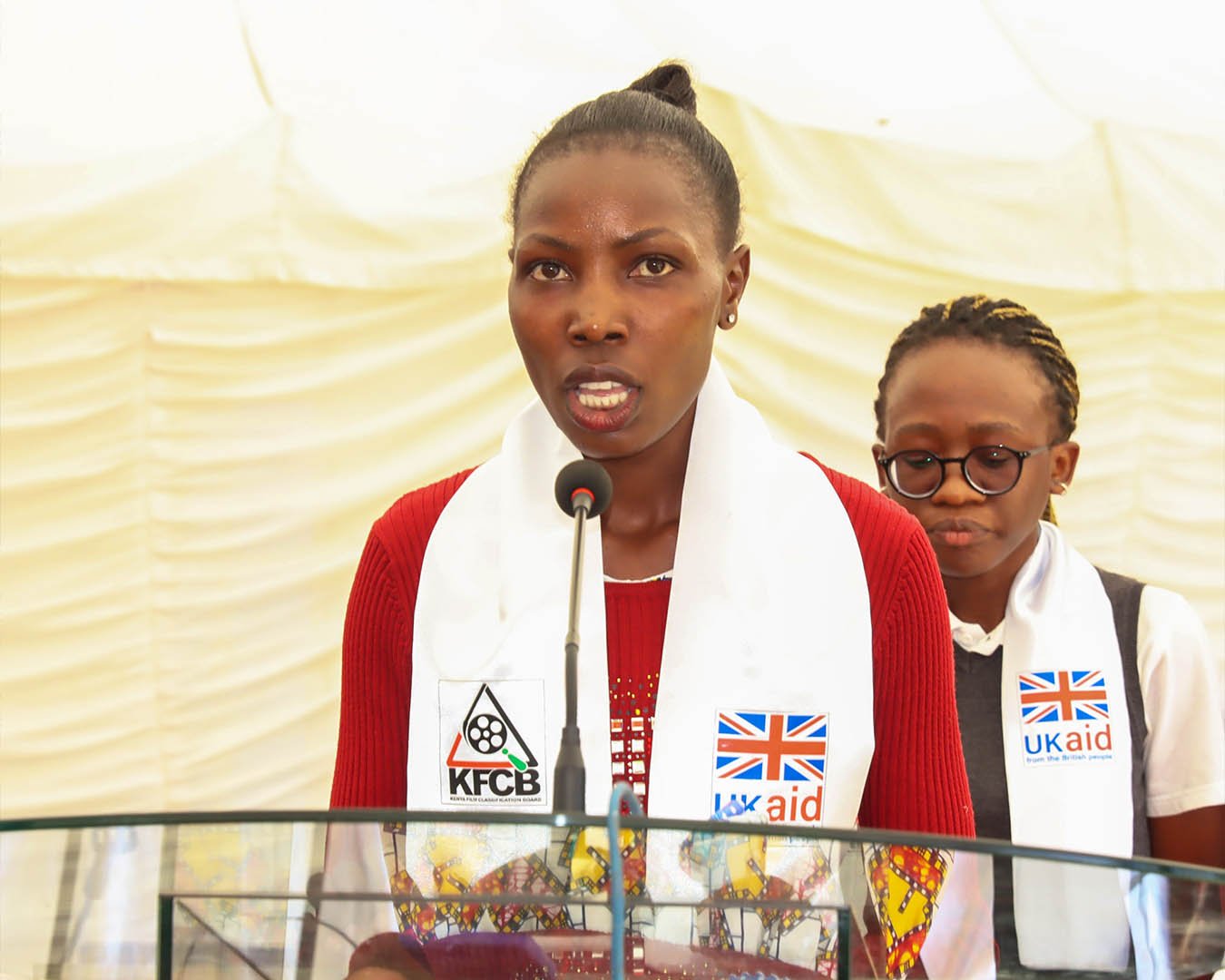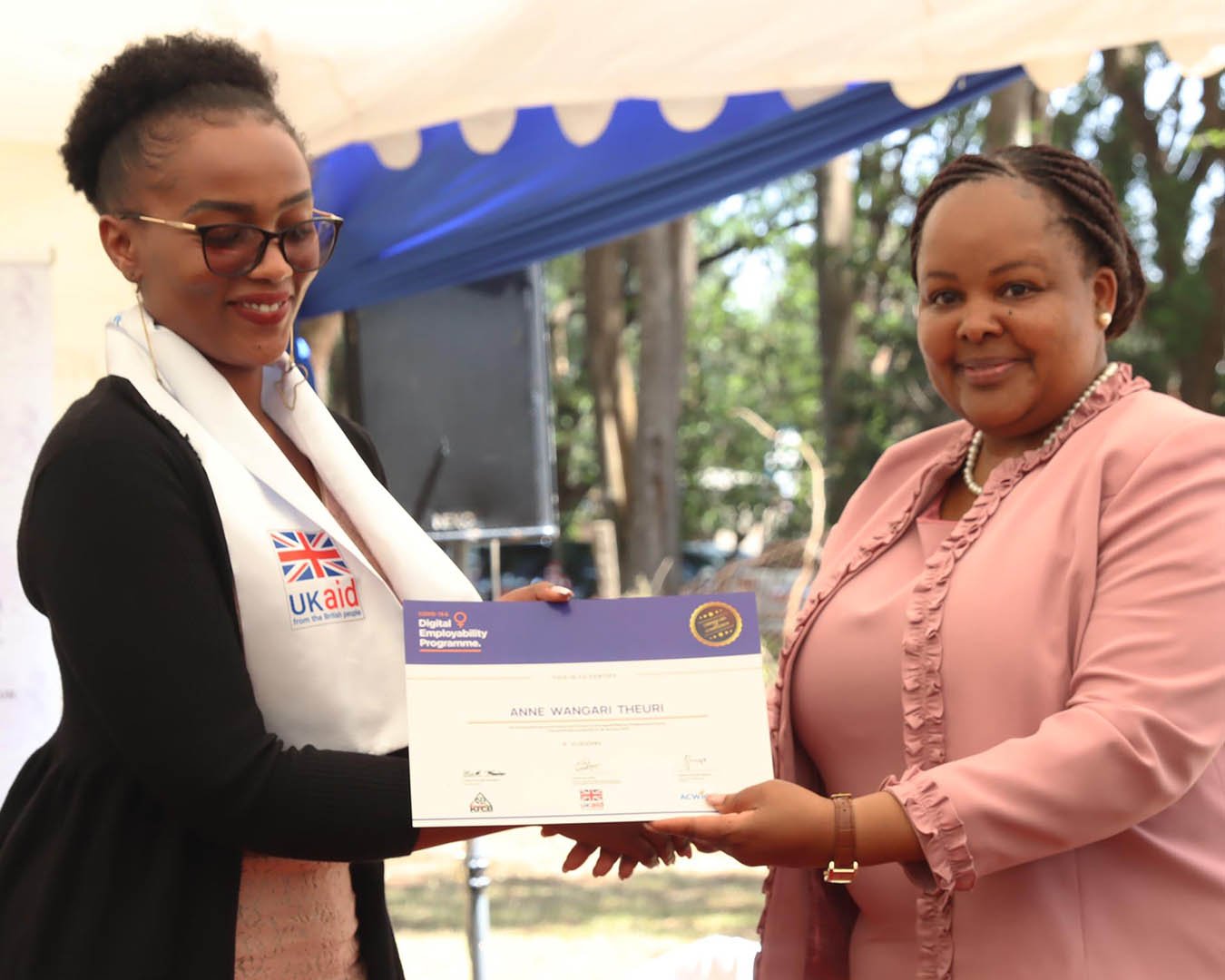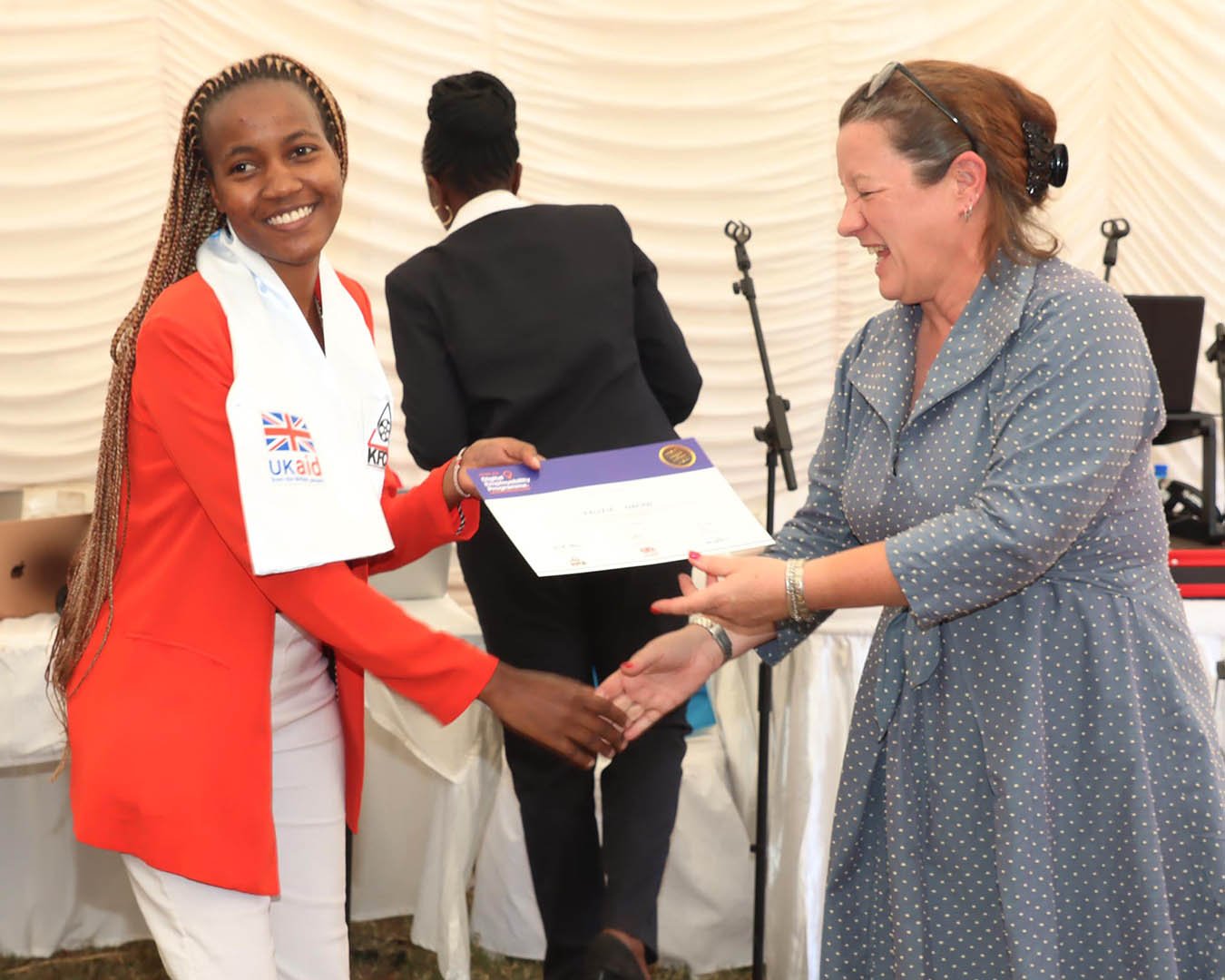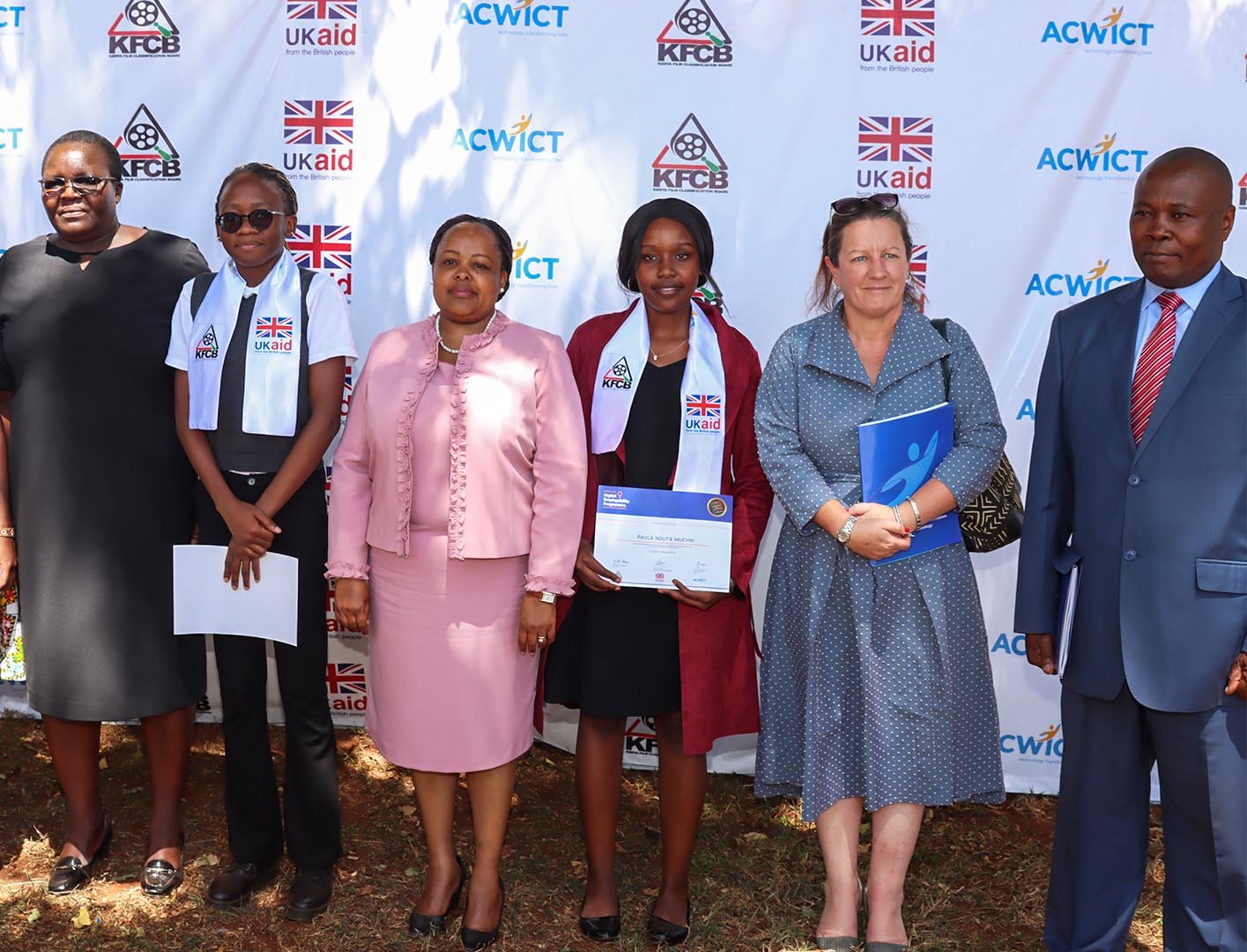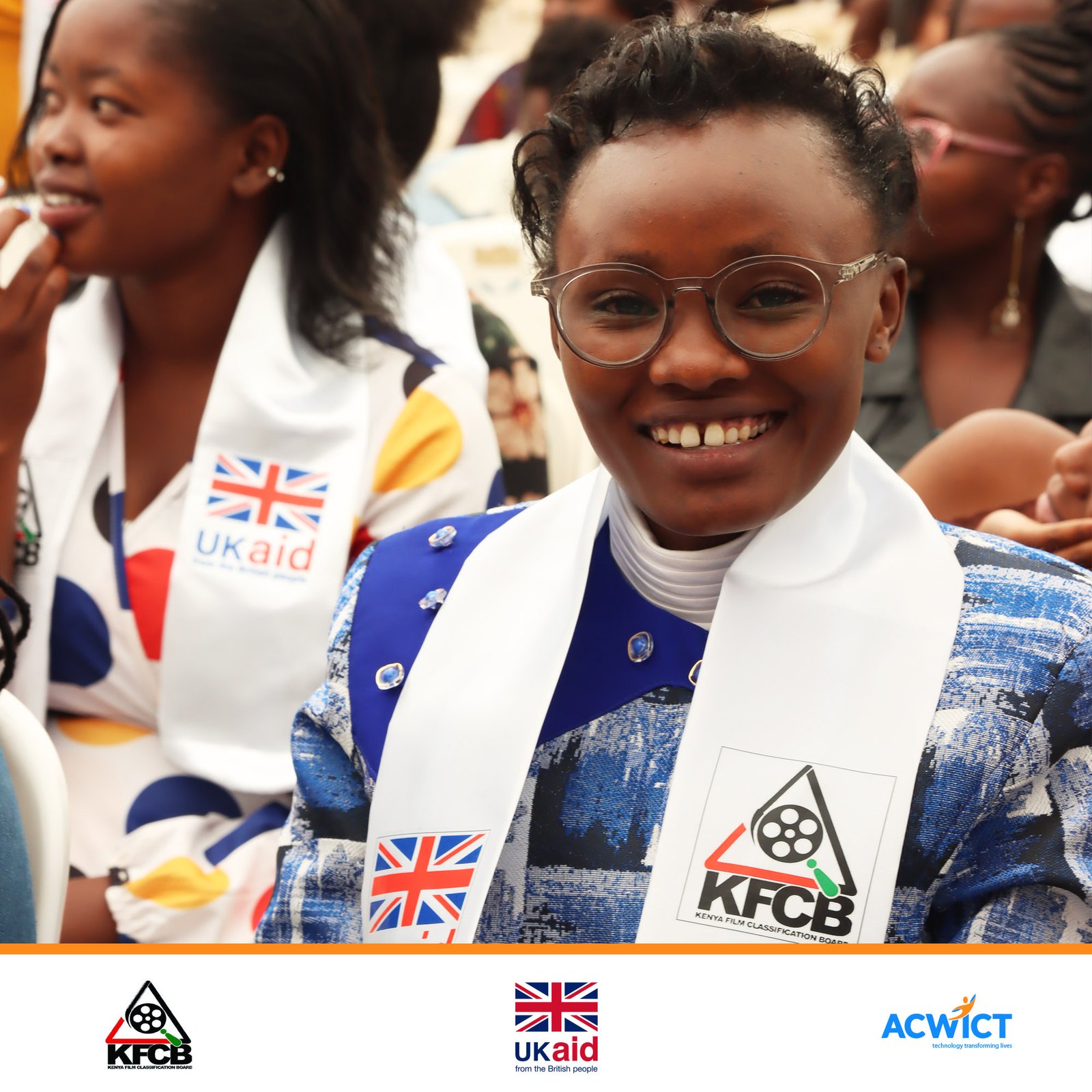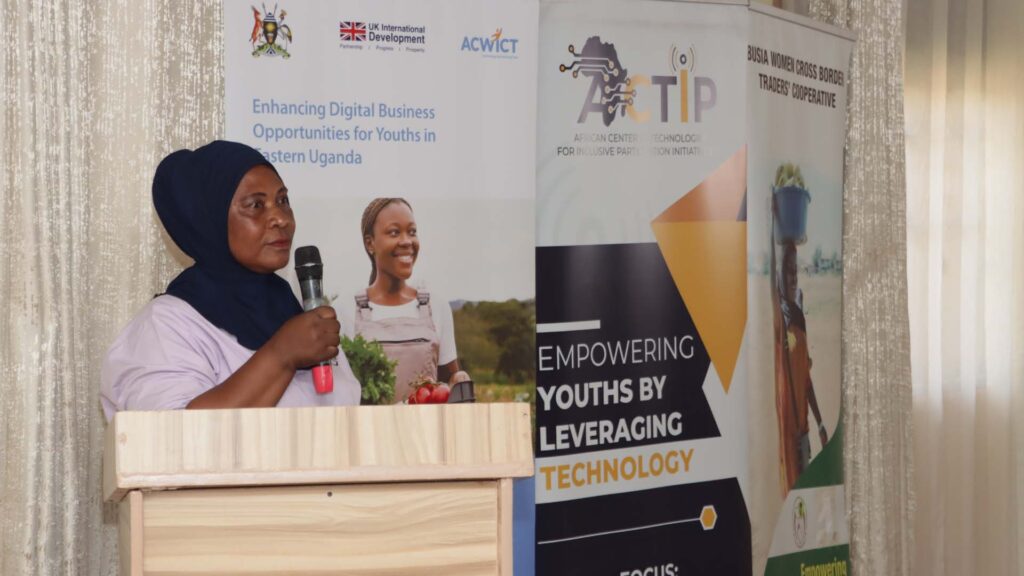Covid 19 & Digital Employability Program
Overview
The focus of the third phase of funding for the COVID-19 and Digital Employability project was to refine, enhance and test three project models deployed in the first and second phase of the project. The request for funding aimed at enhancing Livelihoods for 2832 Vulnerable Women from informal settlements and rural areas who were who were rendered jobless, desperate and vulnerable by the negative effects of COVID-19 pandemic. The third phase of the project expanded to incorporate digital creative space as an additional pathway to digital jobs, a component that was implemented in partnership with Kenya Film Classification Board (KFCB). Phase I & II of the COVID 19 & Digital employability project was implemented in June 2020 to August 2021 with support from the UK Government Digital Access Programme (UK DAP).
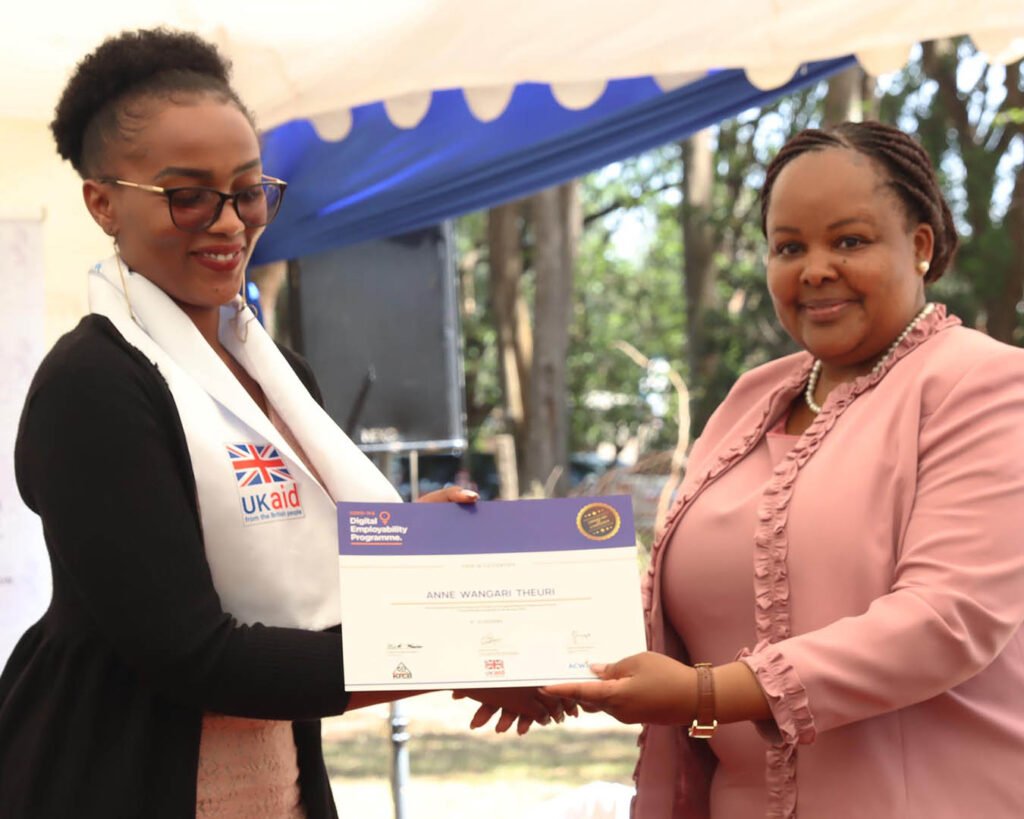
A total of 1832 of the project beneficiaries were sourced from the previous phases I and II of the COVID 19 and Digital Employability Project. An additional 1000 young women joined the project for the first time, with 485 specializing in digital content creation and the creative space, and 515 learning new or refreshed demand-driven digital skills to improve their quality of transition into the online work/digital workspace.
To improve employment prospects and income- generating capacities for the 2,832 vulnerable young women, several project components were factored in and achieved diverse outcomes, which include training/skilling, mentorship, and job linkages. The psychosocial education and specialized counselling component was also a main project component that played a significant role in reducing anxiety, economic tensions, and gender-based violence resulting from the loss of economic livelihoods.
Participants in the creative space/digital content creation project had the opportunity to benefit from an additional project component that arose during the virtual trainings. This was made possible through the ACWICT partnership with Kenya Film School and Grayspace Studio. The two institutions offered practical exposure to photography, audio-visual, and podcasting equipment as well as physical interaction with instructors, mentors, and specialized experts. The practicum has been discussed in detail in the main report since the learners shared resourceful insights in the post-evaluation. The component was previously not included in phases I and II of the COVID-19 and Digital Employability Project.
The need to be evidence based from the start to the very end of the project brought the need for continuous assessments throughout the project right from on- boarding. There was deliberate effort to develop several tools supporting feedback mechanism throughout the project on how the project has impacted the underserved and excluded vulnerable women in demonstrating improved livelihoods, economic resilience, and sustainable career paths as a result of successful engagement in the online, digital, creative work spaces.
Impact
- Improved confidence, rate of transition, performance, and resilience among mentees in pursuit of livelihood, employment, and entrepreneurial opportunities in the online, digital, and creative work spaces through mentorship and psychosocial support.
- Increased quality of local, relevant, and responsible digital content
- Increased income and opportunities for 2832 young and vulnerable women
- Improved models (digital content creation and digital skills) in empowering vulnerable women to succeed in online, digital, creative, and talented work and the provision of local relevant digital content and services
- Achieved a 72% placement rate:
Employment: 72% of trainees earning from digital jobs
Percentage Of Trainees earning from digital jobs
Covid-19 & Digital Employability Graduation Ceremony
The graduation ceremony for the COVID-19 and Digital Employability project showcased the remarkable impact of empowering vulnerable women with digital skills amidst the challenges posed by the pandemic. Through the efforts of organizations like ACWICT, KFCB, AFRALTI, TESPOK, and support from the UK government, over 2,800 young women were equipped with market-driven digital skills, mentorship, and psychosocial support. These skills not only provided opportunities for employment and income generation but also contributed to sectors such as health, agriculture, and the creative economy, fostering resilience and innovation in the face of adversity. The testimonials of beneficiaries like Paula Nduta Muchai, Grace Rao, and Sharon Nafuna Nato underscored the transformative impact of the program, enabling them to secure employment, pursue entrepreneurial ventures, and navigate the digital landscape with confidence and success. As the government and stakeholders reaffirmed their commitment to fostering digital inclusion and economic empowerment, the graduation ceremony celebrated not only the achievements of the graduates but also the potential for sustained impact and growth in the digital economy during the Covid-19 Era and beyond.
